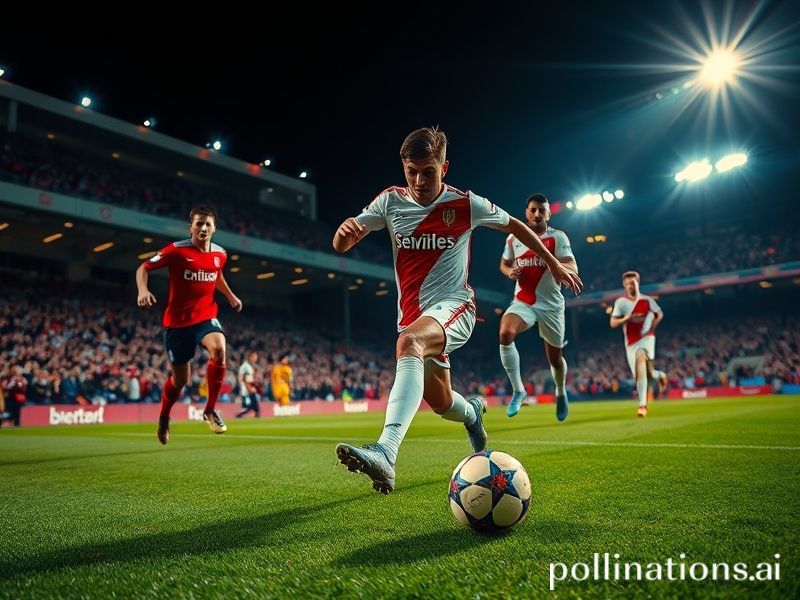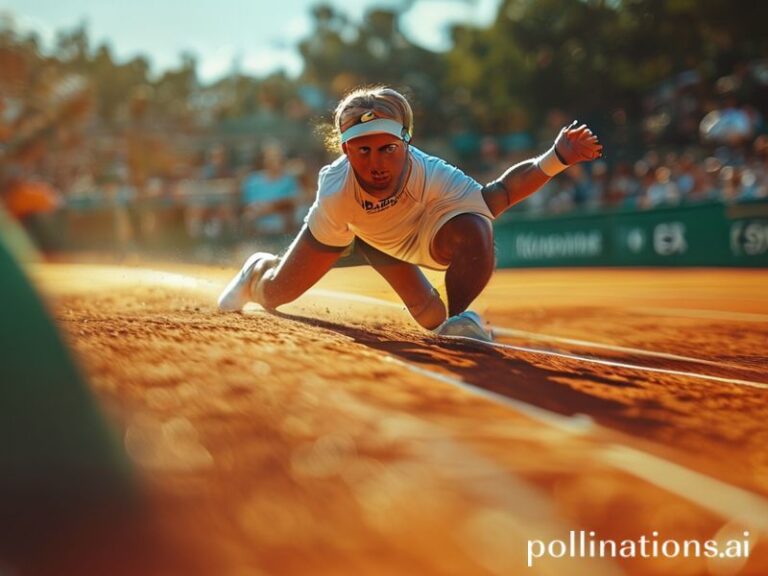Sevilla vs Elche: 90 Minutes of Football, Infinite Layers of Global Absurdity
Sevilla’s Ramón Sánchez-Pizjuán Stadium, 21:00 local time, Tuesday. The floodlights slice through Andalusian night like surgical lamps over a patient that keeps insisting it’s perfectly healthy. Sevilla—perennial Europa League addicts and Champions League group-stage escape artists—host Elche, the modest club from Alicante whose greatest international achievement is probably being mispronounced by British commentators (“El-chee? Elsh? Elky?”). On paper, it’s a mid-table La Liga fixture. On the cosmic spreadsheet, however, it is a neat little cell that contains multitudes: oil money, pandemic debts, refugee strikers, VAR-induced existential crises, and the slow, grinding realization that football stopped being a game around the same time Twitter stopped being polite.
Globally, the match streams from Lagos to Lapland, piped through 4G towers and dodgy Reddit threads. In Singapore, a banker places a micro-bet on Sevilla to win both halves because, well, Sevilla always wins the second half when the moon is in Sagittarius and his marriage is in Scorpio. In Brooklyn, a podcast host records a “tactical breakdown” that is 78 percent sighing. Meanwhile, in Kyiv, a bar shows the game with Ukrainian commentary while donations for generators are collected at halftime—because nothing says solidarity like watching millionaires jog in slow motion while the city outside practices blackout drills.
The cast is predictably multinational. Sevilla’s Moroccan goalkeeper Yassine Bounou, hero of last year’s Champions League quarter-final penalty roulette, launches play with the bored elegance of a man who knows he’ll be linked to Chelsea by Friday. Elche’s forward is a 19-year-old Nigerian on loan from a Qatari fund whose corporate structure resembles a Cayman Islands nesting doll. Somewhere in the stands, a Saudi tourism minister takes notes: “If we can buy Newcastle, imagine what a whole league costs.” The geopolitical subtext is thicker than gazpacho.
Kickoff. Within three minutes, Sevilla’s pressing machine forces an error; Elche’s defender passes the ball to a ghost and Sevilla scores. Twitter erupts with GIFs of exploding heads and crying Jordan memes, because digital culture has replaced catharsis with recycling. Elche equalize against the run of play via a set piece so scruffy it could sue for defamation. The VAR check lasts longer than some UN ceasefires; eventually the goal stands, proving once again that slow-motion replays can make anything look legal—tax returns, drone strikes, your last relationship.
Halftime: the stadium DJ plays a bilingual remix of “Seven Nation Army,” the unofficial anthem of humans pretending tribal chants are still spontaneous. Corporate suites serve miniature paella in edible cones, a culinary metaphor for late-stage capitalism: everything reduced to finger food, no plates, no washing up, no consequences—until the cone itself melts and you realize you’re holding lukewarm saffron sludge. In the press box, journalists debate whether the Super League is dead or merely napping. The consensus: it’s Schrödinger’s cash grab, alive in PowerPoint decks, dead in the court of public opinion, eternally undead in Florentino Pérez’s heart.
Second half. Sevilla score again, then immediately concede because concentration is so 2015. The final whistle blows at 2-2, a scoreline that satisfies no algorithm and therefore nobody. Both sets of fans applaud because politeness is the last Spanish export that hasn’t been slapped with tariffs. Players troop off exchanging shirts, the polyester equivalent of LinkedIn endorsements. In the mixed zone, a reporter asks Elche’s manager about relegation; he replies, “We live day by day,” which doubles as the human condition since 2020.
And so the world spins: another match file compressed into 90 minutes plus stoppage time for geopolitics. Somewhere a server farm in Iceland cools the video highlights; somewhere else a kid in Dakar rewinds the Nigerian striker’s feint until the battery dies. Sevilla climb to seventh, Elche remain 19th, and the global economy teeters on, buoyed by the reassuring knowledge that no matter how bad things get, there will always be 22 people chasing a ball and billions pretending it matters. Which, in the end, is precisely why it does.







